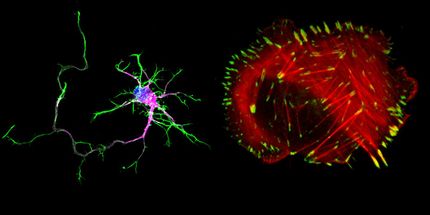Longer life due to faulty RNA processing
If introns remain in certain RNAs, worms live longer
Advertisement
The control of RNA metabolism is crucial to the regulation of animal longevity, researchers from the Max Planck Institute for Biology of Ageing in Cologne have now discovered. They found that worms live longer when certain RNAs are processed differently during RNA maturation. This could be an additional way for organisms to control the ageing process.

Symbolic image
pixabay.com
RNA is an important transmitter of information in our cells and serves as a blueprint for the production of proteins. When freshly formed RNA is processed, so-called introns are cut out to produce the mature mRNA coding for protein. This cutting is called "splicing" and is controlled by a complex called the "spliceosome".
Long-lived worms
"We found a gene in worms, called PUF60, that is involved in RNA splicing and regulates life span," says Max Planck scientist Dr. Wenming Huang who made the discovery. Mutations in this gene caused inaccurate splicing and the retention of introns within specific RNAs. Consequently, lower amounts of the corresponding proteins were formed from this RNA. Surprisingly, worms with this mutation in the PUF60 gene lived significantly longer than normal worms.
Particularly affected by this defective production were some proteins that play a role in the mTOR signalling pathway. This signalling pathway is an important sensor for the availability of food and serves as a control centre of cell metabolism. It has long been the focus of ageing research as a target of potential anti-ageing drugs. The researchers were also able to show in human cell cultures that reduced levels of PUF60 activity led to lower activity of the mTOR signalling pathway.
PUF60 mutation in humans
"We think that by altering the fate of introns in RNAs, we have discovered a novel mechanism that regulates mTOR signalling and longevity," says Max Planck Director Adam Antebi who led the study. "Interestingly, there are also human patients with similar mutations in the PUF60 gene. These patients have growth defects and neurodevelopmental disorders. Perhaps in the future, these patients could be helped by administering drugs that control mTOR activity. But of course, this needs more research."
























































